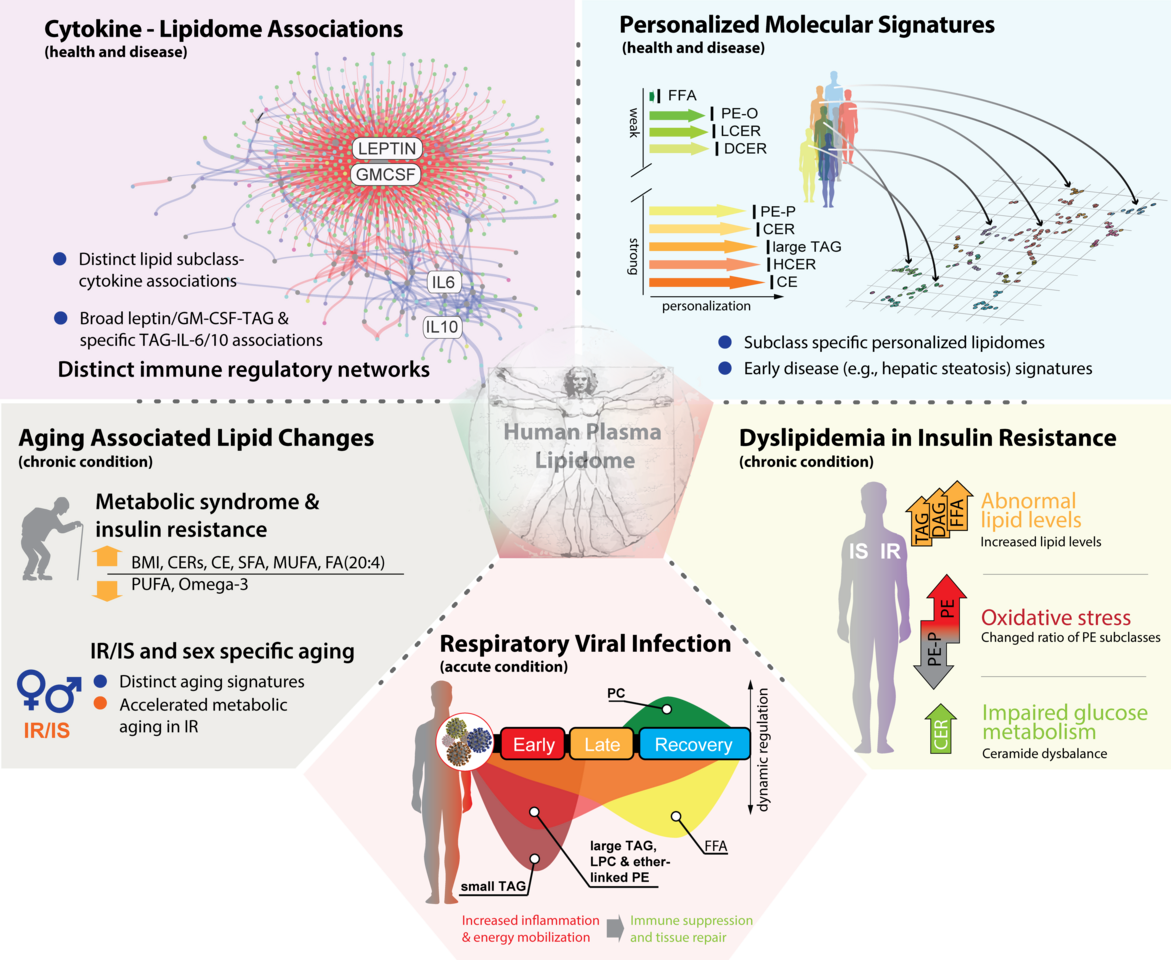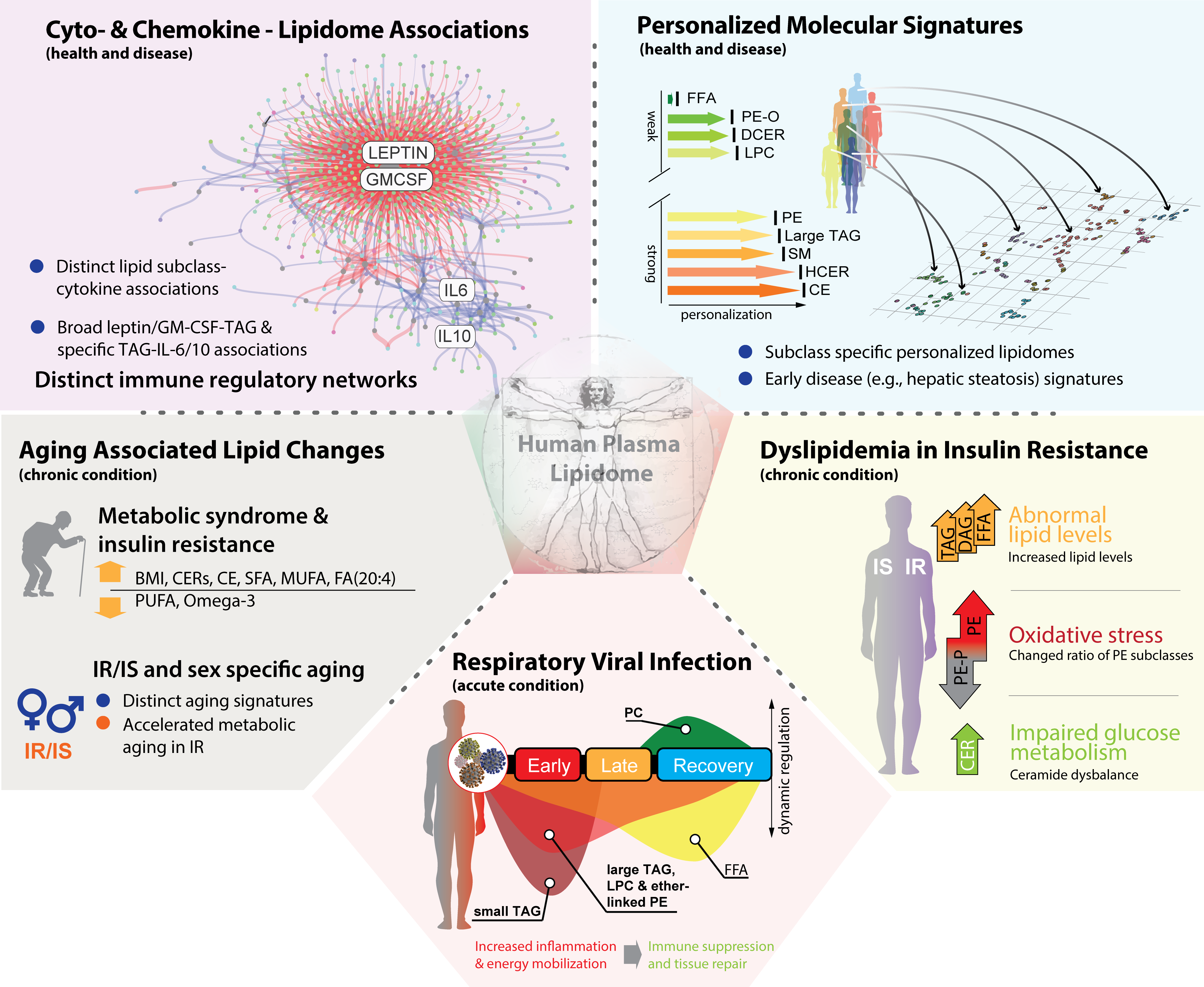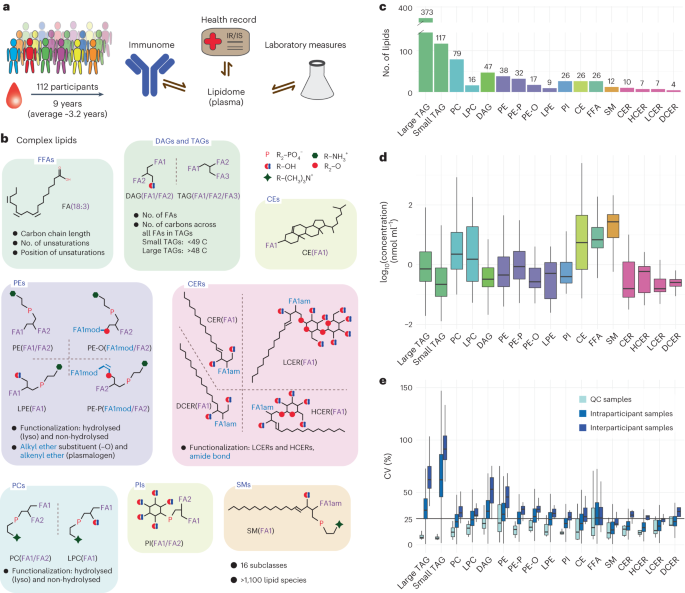Towards Personalized Medicine and Disease Prevention: Completing the Molecular Puzzle of Multi-omics
Published in Cell & Molecular Biology

Our health is a multifaceted landscape, much like a jigsaw puzzle, and the iPOP cohort1 that steadily grew over the years taught us much about assembling the molecular puzzle of personalized health. Each colorful piece represents facets of our molecular well-being - genetics, transcriptomics, proteomics, lifestyle, diet, environmental factors, and more. Understanding how these pieces interconnect enables an exciting and holistic perspective of health. Over the last years our team performed a series of studies that each contributed unique pieces to this puzzle2.
Our previous study "Longitudinal multi-omics of host-microbe dynamics in prediabetes” provided a detailed view of the early stages of Type 2 diabetes (T2D) highlighting the dynamic interplay between our bodies and microbes3. In "A longitudinal big data approach for precision health" we assembled a multi-colored picture of personal health by combining omics technologies with wearable health monitors. Jointly, this painted a comprehensive picture of metabolic, cardiovascular, and oncologic pathways, enabling more than 67 actionable health discoveries4. In later studies, we explored “Personal aging markers and ageotypes” as well as seasonal effects, demonstrating how our bodies' molecules change when we age, delineating different aging trajectories5 and the seasonal effects on molecular and microbial changes. Collectively, these and other studies provided critical pieces to the puzzle of personalized health, offering unique insights into our body's complex landscape, but were missing one particular element - the human lipidome .
Here, we welcome you to the world of lipidomics - the study of lipids in our bodies. Lipids do far more than just serve us as an energy source. They contribute significantly to our cells’ structure, signaling, and metabolism and are key actors in the intricate molecular landscape of health and disease with, as we show, great potential for precision health.
One of our major findings are specific lipids that may serve as early disease markers providing us a sneak peek into disease progression, and may aid in the development of tailored presymptomatic, preventative treatments. A particularly intriguing observation is the dynamic change of lipid molecules throughout the course of viral infections and recovery. This highlights that our body's lipid response to infection is not static—it evolves throughout the infection and recovery process. This could have major implications for how we manage diseases such as COVID, as understanding these changes may help us predict disease progression or devise new therapeutic strategies to promote recovery and perhaps mitigate devastating morbidities such as long COVID. In metabolic unhealthy people with insulin resistance - a form of pre-diabetes, some of these changes are distinct, showing that our metabolic health could significantly influence the body's response to infection. Moreover, we observed specific lipid changes increase along with age in insulin-resistant individuals, indicating these individuals may experience different or accelerated aging. This may guide new interventions to treat age-related diseases.
With many lipids being supplementable through diet, our kitchen could very well be our first line of defense in managing various health conditions. By tweaking our menu and adjusting our intake of certain fats, we could take control of our lipid profile and consequently, our health leveraging the high-resolution information of the human lipidome.
Importantly, piecing together this puzzle of our molecules would not have been possible without a great team of curious scientists, our iPOP study participants, and last but not least, the often unnoticed yet continuous support of our scientists’ families. Thank you and stay curious!

- Chen, R. et al. Personal omics profiling reveals dynamic molecular and medical phenotypes. Cell 148, 1293–1307 (2012).
- Hornburg, D. et al. Dynamic lipidome alterations associated with human health, disease and ageing. Nature Metabolism 1–17 (2023).
- Zhou, W. et al. Longitudinal multi-omics of host-microbe dynamics in prediabetes. Nature 569, 663–671 (2019).
- Schüssler-Fiorenza Rose, S. M. et al. A longitudinal big data approach for precision health. Nat. Med. 25, 792–804 (2019).
- Ahadi, S. et al. Personal aging markers and ageotypes revealed by deep longitudinal profiling. Nat. Med. 26, 83–90 (2020).
Follow the Topic
-
Nature Metabolism

This journal publishes work from across all fields of metabolism research that significantly advances our understanding of metabolic and homeostatic processes in a cellular or broader physiological context, from fundamental cell biology to basic biomedical and translational research.



Please sign in or register for FREE
If you are a registered user on Research Communities by Springer Nature, please sign in